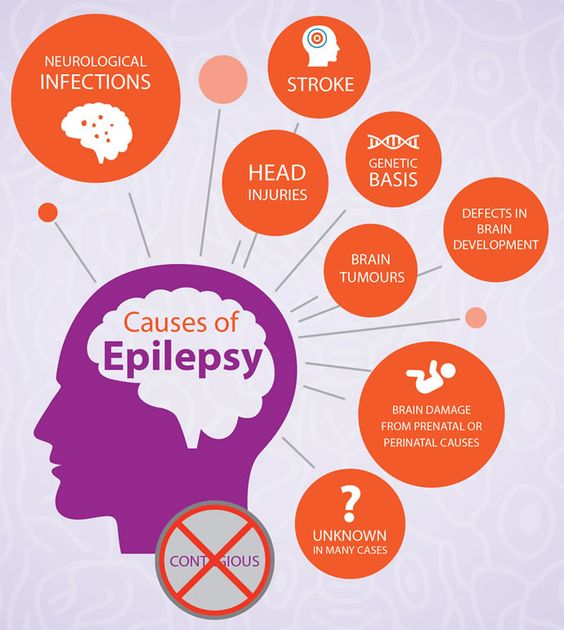Navigating the challenges of epilepsy treatment can be a complex and multifaceted journey for both patients and caregivers. Understanding the underlying causes, symptoms, and types of seizures is crucial in effectively managing this neurological disorder. From the initial diagnosis and evaluation to exploring various treatment options, individuals with epilepsy often face a range of physical, emotional, and lifestyle challenges. This article aims to provide insights and guidance on how to navigate the intricate landscape of epilepsy treatment, offering information on medications, lifestyle adjustments, coping strategies, and the support systems available for those affected by epilepsy.
Gabapentin 100mg is a medication primarily used to treat nerve pain and seizures. It works by affecting certain neurotransmitters in the brain, helping to reduce pain signals and stabilize electrical activity. It’s often prescribed for conditions like neuropathic pain and post herpetic neuralgia, and sometimes as an adjunct treatment for seizures.
Understanding Epilepsy: Causes and Symptoms
Overview of Epilepsy
Epilepsy is like that unexpected guest who shows up unannounced and crashes your party – it’s a neurological disorder that causes unpredictable seizures due to abnormal brain activity.
Common Causes of Epilepsy
Just like trying to find who finished the last slice of pizza, pinpointing the exact cause of epilepsy can be tricky. Some common culprits include genetics, head injuries, infections, and brain tumors.
Symptoms and Types of Seizures
Imagine your brain throwing a disco party without your permission – that’s a seizure. These can range from the subtle to the show-stopping grand mal seizures that make you break out your best dance moves involuntarily.
Diagnosis and Evaluation of Epilepsy
Diagnostic Tests for Epilepsy
Think of diagnostic tests as detective work to catch epilepsy red-handed. From EEGs that track brain waves to MRI scans that peek inside your noggin, these tests help doctors crack the case.
Gabapentin 300 mg is a medication that contains gabapentin, used to manage restless legs syndrome and seizures. It works by altering the way nerves send messages to the brain, helping to reduce pain and stabilize neural activity. Gabapentin is often prescribed for conditions like neuropathic pain and epilepsy.
Importance of an Accurate Diagnosis
Getting an accurate diagnosis is crucial, like using the right emoji to convey your mood – it ensures you get the right treatment plan tailored to your specific type of epilepsy.
Consulting with Specialists
When dealing with epilepsy, it’s like assembling your Avengers dream team – you want neurologists, epileptologists, and other specialists in your corner to come up with the best battle strategy.
Medications and Treatment Options
Antiepileptic Medications
Antiepileptic medications are like the superhero capes of epilepsy treatment – they swoop in to control seizures and save the day. Finding the right medication is key to keeping those brain disco parties in check.
Alternative Therapies and Surgical Options
When meds alone won’t cut it, it’s time to think outside the pill bottle. From ketogenic diets to surgical interventions, there’s a whole toolbox of alternative therapies and options to explore.
Managing Side Effects and Drug Interactions
Sometimes the side effects of epilepsy medications can feel like dealing with a gremlin after midnight – tricky. It’s important to work closely with your healthcare team to tame any side effects and avoid drug interactions.
Lifestyle Management for Epilepsy Patients
Creating a Seizure Action Plan
Think of a seizure action plan as your emergency kit for unexpected disco parties – it outlines what to do when a seizure strikes, ensuring you and your loved ones are prepared.
Importance of Regular Exercise and Sleep
Getting enough exercise and sleep is like feeding your brain with the right fuel and tucking it in at night – it can help reduce stress, improve overall health, and even potentially decrease seizure frequency.
Dietary Considerations for Epilepsy
Your diet can play a role in managing epilepsy, like picking the right playlist for your brain’s disco party. From ketogenic diets to avoiding triggers like alcohol and caffeine, making smart dietary choices can make a difference. Navigating the world of epilepsy treatment can feel like exploring uncharted territory, but with the right knowledge, support, and a sprinkle of humor, you can tackle the challenges that come your way.
Addressing Psychological and Emotional Challenges
Living with epilepsy can take a toll on your mental health. The unpredictability of seizures and the impact on daily life can lead to feelings of anxiety, depression, and stress. It’s important to prioritize your emotional well-being by seeking counseling or therapy. Talking to a mental health professional can help you navigate through the emotional challenges that come with epilepsy and develop coping strategies to manage them. Additionally, joining support groups or connecting with peers who understand what you’re going through can provide a sense of community and comfort.
Coping Strategies for Seizure Management
Recognizing triggers and warning signs of seizures is key to managing epilepsy. By keeping track of your symptoms and identifying patterns, you can better understand your condition and take proactive steps to minimize the risk of seizures. Knowing how to administer first aid during a seizure is crucial for your safety and those around you. Creating a supportive environment at home and work, where potential triggers are minimized, can also help in managing your seizures effectively.
Support Systems and Resources for Patients and Caregivers
There are various community resources available to support epilepsy patients in their journey. These resources can range from informational websites to local support groups and organizations dedicated to epilepsy awareness. Caregivers play a vital role in epilepsy management by providing physical and emotional support to their loved ones. It’s essential for caregivers to educate themselves about epilepsy and its treatments to offer the best possible care. Patients with epilepsy can also benefit from educational and employment support services that cater to their unique needs and challenges. By tapping into these resources, both patients and caregivers can navigate the complexities of epilepsy with greater ease. In conclusion, managing epilepsy requires a comprehensive approach that encompasses medical treatment, lifestyle adjustments, emotional support, and community resources. By staying informed, proactive, and connected to a supportive network, individuals with epilepsy can better navigate the challenges they face on a daily basis. Remember, you are not alone in this journey, and with the right tools and strategies, it is possible to live a fulfilling life while managing epilepsy effectively.







